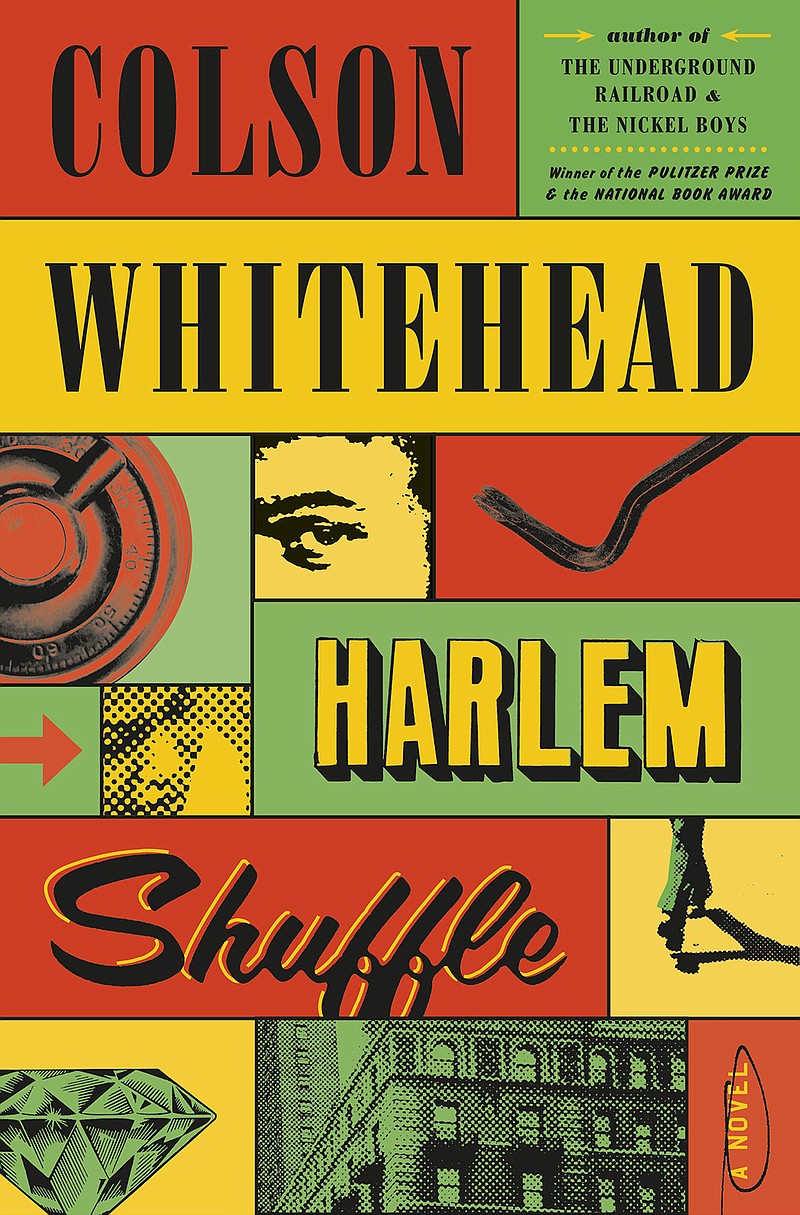Harlem Shuffle
by Colson Whitehead; Doubleday (336 pages, $28.95)
Colson Whitehead is perhaps our most protean novelist, shape-shifting with each book, a jack of all trades and master of all. His enthralling, cinematic new work, "Harlem Shuffle," capers away from the weightiness of "The Underground Railroad" and "The Nickel Boys," both winners of the Pulitzer Prize; here he tweaks a simple heist story to limn enduring conflicts of race and class.
Set at the dawn of President Kennedy's New Frontier, "Harlem Shuffle" conjures, with uncanny precision, a world so close and yet so far. The son of a street thug, Ray Carney has stuck to the straight and narrow, an A-student navigating potholes, literal and metaphorical, in his neighborhood. With an eye for stylish furniture - he's opened a store on 125th Street - and his marriage to Elizabeth, a daughter of bourgeois Strivers' Row, he aspires to W.E.B. Du Bois' Talented Tenth, yearning for admission into the Dumas Club, alongside Black bankers, physicians and politicians.
Not so fast. Enter Freddie, Carney's petty-crime cousin, who ensnares him in a jewelry heist at the Theresa Hotel, Harlem's answer to the Waldorf-Astoria. The robbery comes off successfully, but in the aftermath Carney trades his soul like a used dinette set; he's doomed to the gravity of his father's crooked ways.
The Benjamins strangle Carney's better angels as he slips into a noirish "dorvay" between virtue and vice, between the dead and the living, a foot soldier in "a whole mean army of schemers and nocturnal masterminds working their rackets toiling and plotting in their apartments and SROs and twenty-four-hour greasy spoons."
Whitehead's evocation of early 1960s Harlem - strewn with double-crosses and double standards, broken glass and broken dreams - is irresistible.
"A cabbie pounded on his horn at an old biddy jaywalking and she cursed him out, dragging a battered suitcase," he writes. "One of the street preachers yelled 'I'm saving souls here!' and raised his arms as if parting seas. Down the block, two newsboys from rival papers fought over the turf in front of a cigar store. Their dropped tabloids fanned out on the sidewalk and trembled in the exhaust of a city bus."
The novel also leans into the period's slang and slurs, wrenching hard truths from the gleaming surface of postwar America.
Whitehead's sentences are beautifully bricked together - it's nigh impossible to wedge a blade between them - and his midcentury deadpan is flawless. But there's a touch of Renaissance storytelling, as well. His pilgrim's progress is also a Dantean descent, with a seasoning of Shakespearean revenge drama. In Carney we glimpse the circles of hell, Hamlet lurking on the night watch. A fury smolders in this striver: When he acts, he's not responding to just slights and bribes, but rather to a social order built to chain him to his own blighted block.
While a valentine to a time and place, "Harlem Shuffle" brilliantly tackles the daunting challenges of any American era. I keep waiting for Whitehead to stumble, if slightly. I wait in vain.

